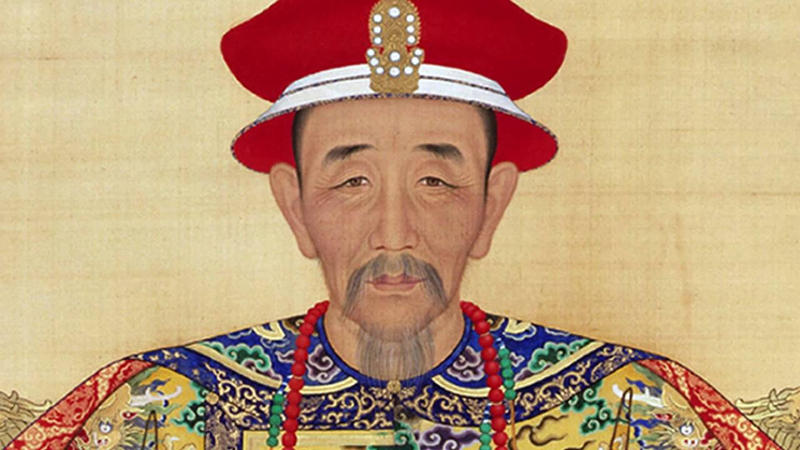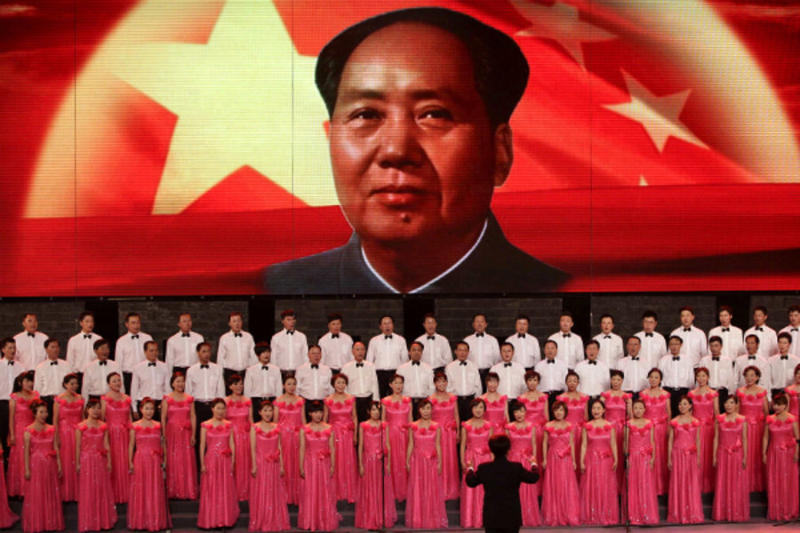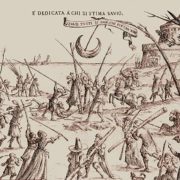What is behind the crisis between China and America? There is the present face: the clash of interests and visions and fears between the two countries, chronicled in the press every day. But there is also a longer, almost existential aspect in all this – China’s difficulty escaping its own history in dealing with the rest of the world. This spelled disasters in the past. But to see this we have to go back some 450 years.
The Ming
On June 24, 1571, the conquistador Miguel Lopes de Legazpi arrived in Manila in the Philippines and declared it a territory of New Spain, belonging to the kingdom of Spain. He then pushed back the influence of the sultan of Brunei, who was the local power; and also displaced the local Chinese traders, who had established themselves without government support in Manila[1].
At the same time, just a couple of months later, on October 7 of the same year, the Holy League led by Spain managed to check the Turkish advance in the Mediterranean in the battle of Lepanto. It was the first time the Turkish advance against Christianity was stopped since the Turks took over Constantinople in 1453 and blocked the European access to the trade with India and China. The conquest of Constantinople had prompted the search for an alternative route to East Asia that eventually led to Columbus discovery of America.
With the half victory in Lepanto and the Turks partly subdued, Spain had enough resources to concentrate elsewhere. Although the Turks continued to be a threat in the Mediterranean, they were no longer advancing, and Italy was no longer in danger of a Muslim invasion. Spain could have the quite to develop Manila as a large port to trade gems from India, spices from what is now Indonesia and Southeast Asia, and most importantly silk and porcelain from China. Chinese silk was the most important luxury good in Europe at that time. It was used to manufacture the best dresses, gowns, and robes for the aristocracy. Spain paid for it in silver mined from Mexico.
It was the beginning of the first real global trading system, in which Spain distributed goods from all over the world and bought them with American silver. The Spanish silver at that time saved the Ming economy. Industrial output of silk and porcelain boosted production and the economy at a time when China was approaching a fiscal crisis because taxes were not enough to pay for state expenditures. Silver soon replaced paper notes, the value of which had collapsed in the previous years. China’s economy changed structure: it exported and imported more from abroad.
As Brook wrote: «Silver had been flowing into the Chinese economy from Japan during the middle decades of the sixteenth century, when it was augmented by bullion from South America. The lifting of the ban on maritime trade in 1567 to all but Japan (in response to the petition of Fujian governor Tu Zemin to legalize the large foreign trade coming in and out of Moon Harbor on the south Fujian coast) coincided with the Spanish conquest of the Philippines in the late 1560s and the opening of the huge silver mines in Potosí (in present-day Bolivia) in the 1570s».
This situation possibly urged the Chinese court to listen to Matteo Ricci and his Jesuits, who came from that world and would help the Ming emperor to understand what was going on in the world.
In fact, silver from Spain buoyed the Chinese economy for some 60 years. However, around 1620, and more importantly after the 1630s, Spain was drained of resources. It was about to begin the long 30 Years’ War and had been bled almost dry in the long conflict against England and Holland. Therefore, Madrid halted the “smuggling” of silver. This meant in fact that Spain was no longer buying silk from China. At the same time, Japan also stopped trading with China in silver. Still China carried on buying from outside. Then, China’s silver supply dwindled. People started hoarding it to save their assets and this made silver even scarcer.
In a short decade, almost all Chinese silver was drained out of the country, and the value of silver quadrupled compared to the value of copper. At the time, China had a two-metal system. Internal trade was paid in copper, but taxes and foreign trade were paid in silver. That is, in ten years the peasants who constituted the largest tax base for the country became four times poorer than before.
There were peasant uprisings. Li Zicheng raided Beijing, the last Ming Emperor hanged himself in the Beihai Park, and the Manchu were called in to support the Ming and crack down on the rebels. They did put down the rebels, but didn’t relinquish the power and established themselves as the new Qing empire.
The Qing
Some 200 years later, in the 1830s, China was by far the richest country in the world. At the time, the then rising power of England was thirsty for Chinese tea. In London and other English cities, water was foul because of pollution – it had to be boiled first to be drinkable. But even boiled it had a foul taste, and adding tea leaves to the boiling water made it pleasantly drinkable for the first time. Tea leaves were then a must for England and rapidly developing countries in Europe.
Yet China, mindful of the memory of the Ming Dynasty, was exporting tea leaves but not importing anything from Europe. The result was that in the 1830s, China held about 70% of all global silver, and its economy was about one-third to one-half of the global GDP. This situation was untenable for England and other European countries because basically all their wealth was being drained to China, which was not giving back anything.
The Qing then had expelled the Jesuits about a century before and had little or no interests in hearing from foreigners another version of what was happening around them.
This led famously to the First and Second Opium Wars. China was forced to trade opium and open its markets. Moreover, foreign influence inspired the notorious Taiping uprising which killed possibly up to 20% of the Chinese population of the time, some 60-70 million people, more than during World War 2.
Within a few decades, the Chinese economy was shaken by the Rebellion and opium consumption. But most importantly the country once again, had failed to properly deal with the outside world which had come knocking at its door. By the end of the century, the once world’s richest country became poor, and the Qing dynasty fell.
In a way, the Qing tried to learn the lesson of the Ming. The lesson of the Ming was you cannot trade freely with the outside world or else all your wealth will be drawn out. However, the Qing solution didn’t work either: you cannot simply be an exporter without being an importer because it puts you on the margins of global trade and engenders military hostility from the rest of the world. Neither solution worked.
Lessons for the present?
What is the solution that China now tries to propose to the world? China is a net exporter, and it holds the world’s largest share foreign reserves, although not nearly as big as the silver reserves of the Qing dynasty.
Its economy is growing very fast and is already quite sizable, although it is still a fraction of what it was in 1840. It is trying to establish its own trading system with its own rules, using for instance the Belt and Road Initiative. The reaction from abroad is mixed. Different countries are trying to cut different deals with China, and America is spearheading a more pugnacious approach, demanding the opening of the Chinese market.
All three historical examples seem to have one thing in common: China is not trying to integrate itself into the global trading system; it’s trying to establish its own system against an existing system. Since the discovery of America, and most importantly since the establishment of Manila and all the trans-Pacific and trans-Atlantic trade in the 1570s, world trade and the global economy has been centered around the American continent. The present trade system is the progressive accumulation of centuries of experience, know-how, and rules that have been increasingly accepted by most of the world.
China didn’t try to be part of that trade in the 16th century, it didn’t try to be part of it in the 19th century, and it is only half-heartedly part of that trade now.
The Americans, who now dominate global trade, economics, and finance, took over from the British-Dutch, who took over from Spanish-Portuguese domination. What can China do? Can it manage to establish its own alternative trade, economic, and financial system? This would be objectively disruptive to the existing system, it would be similar to what the USSR tried to do after WWII, although with the different ideas and rules, and therefore it would draw growing hostility from countries who are part of that system.
In theory, in the 16th century, it would have been easy for the powerful Ming state to take over Manila and the Spanish trade with Mexico. Moreover, the mighty Ming fleet, which had traveled to Africa under admiral Zheng He just a hundred years before, could have easily started trading directly with Mexico. It didn’t do so for whatever reason. It would have also been easier for the Qing empire, which was far richer than the British and French combined, to start trading in tea leaves and whatever was necessary and useful for Chinese and global trade in the middle of the 19th century.
In both cases, the Ming and Qing empires failed to do so. Why? Possibly because they failed to see the world as a whole body, a global environment in which China had to first fit in and then possibly try to dominate. Can it do so now, when China is certainly poorer in absolute and relative terms than the Ming or Qing empires? Does China now have a global view – that is, does China know what it wants the world’s financial and economic system to be? Does it have a plan besides the legitimate goal of making China rich and at times the simplistic idea of a win-win proposition?
China needs a global view that is accepted and welcomed by the rest of the world. This global view actually already exists. China could try to challenge and replace it with its own view, the way the Soviets tried with Communism, or it can accept the existing global view. The first choice of course puts China directly in contrast with the existing world, even without openly stating so. But perhaps this time could be different from the past, and this could be thanks to the Marxist revolution.
Politics delinked from Religion
The failure to see the modern world in the 17th and 19th century and the present half failure comes also from a deeper world view – the historical link between religious and political authority in the same person, the emperor.
This break came in different phases. The first came with the May 4th demonstrations of 1919, when the youth of Beijing protested in favor of science and democracy. The movements of the 1920s and 1930s came along trying to establish Chinese thinking on completely different grounds. Hu Shi[2] wrote the first history of Chinese logic, attempting to bridge the gap between Chinese and Western ways of thinking and pushing the Chinese way of thinking more toward a Western mold based on idea of logic. Feng Youlan[3] tried to give reasons of the differences in the traditions of Greece and China by looking at the history of their geography. China’s thought sprang from a land made of plains and through control of the land sprawling between rivers and forests, he argued, while Greece was a place of city states perched on cliffs on seashores was seafarers, traders, and pirates.
But a fundamental blow to the old way of thinking came with the adoption of Western Marxist philosophy when the Chinese Communists came to power. Marxism rejected religion, and power was to be established only through real means without recourse to a metaphysical ideology making the leader the Son of Heaven and thus interpreter of the will of deity governing the world.
Actually, in the first 30 years of power, things got confused because although Mao didn’t claim to have the religious tradition of ancient China behind him, he still acted as an ancient emperor/demigod of the past. The worship of his personality was the basis of his hold on power and there was an almost mystical faith in his power to divine world affairs.
Deng Xiaoping in the late 1970s later rejected this worship and basically managed to fain support from the common people through making them rich and allowing them to strive for wealth. It was practical and it worked better than any times in the past. Yet in the long run the lack of any idealistic and long-term cultural anchor tore apart every social fabric and brought about the system corruption that pushed the country on the verge of collapse in the early 2010s.
Yet, although the anticorruption movement has started rebuilding some social structure, the on-going campaign is still far away from answering the double question facing China: how to found a new social contract and culture in China and how to make this contract in positive, constructive communication with the rest of the world abiding rules very different from the Chinese tradition.
This goes on the basic issue: how will Xi Jinping hold on to power? Xi Jinping doesn’t have a religious claim, and his promise of wealth is decreasing. This creates new challenges to his power and to China’s standing internally and externally.
For historical and philosophical reasons, the Western tradition quite early on separated religion and rational knowledge into, in the words of Greek philosopher Aristotle, «physics and meta-physics». Truly, in Oriental kingdoms that dominated the Eastern Mediterranean around the birth of Christ, the two authorities, religious and non-religious, were meshed into one. This merging of two authorities was passed on to the Roman Empire but with the recognition of Christianity as the official religion of the empire in the 3rd century AD, the two authorities started to move apart.
Yes, in the early years of Christianity the emperor still had a lot of authority on theological matters, but even then he was not the ultimate authority. He had to discuss those matters with the bishops and patriarchs of the church. And gradually the two authorities moved in different directions, although they still had to find a common ground. It was on a philosophical basis, the culmination of a few centuries of philosophical debate in ancient Greece, that Aristotle concluded that knowledge should be separated between physics and meta-physics, what is beyond the reality.
This separation was of seminal importance for Western thought as it set apart the thinking of the reality from the thinking of religion. From the thinking of reality came a very logical and straightforward formal way of thinking that gave rise ultimately to logic, mathematics, and technological applications derived from them. Conversely, metaphysics became more and more removed from physics and its laws.
Blame clever Zhuangzi
In China, there was never historically nor philosophically a line drawn between physics and metaphysics, between religious and temporal power. The king was defined in religious terms. He was called wang: that is, he was the being linking the supernatural and the realm of human beings in nature. This was the division that Chinese saw, and the divine power of the ruler was to link the parallel lines between all these realms. Philosophically, early China also developed a system of logic that we could consider similar to the one developed by the Greeks.
It appears, for instance, in Mo Jing[4], but the early development of logic was shattered by the philosophical push of Zhuangzi, who managed through logic to defeat logic[5]. The crucial passage is here:
«Zhuangzi and Huizi were walking on the river Hao, when the former said, “These fishes come out, and play about at their ease – that is the enjoyment of fishes”. The other said, “You are not a fish; how do you know what is the enjoyment of fishes?”. Zhuangzi rejoined, “You are not I. How do you know that I do not know what constitutes the enjoyment of fishes?”. Huizi said, “I am not you; and though indeed I do not fully know you, you certainly are not a fish, and it is proven that you don’t know what constitutes the happiness of fishes”. Zhuangzi replied, “Let us keep to your original question. You said to me, ‘How do you know what constitutes the enjoyment of fishes?’. You knew that I knew it, and you asked me – well, I know it over the Hao”». (Autumns Floods)
Zhuangzi’s victory may have also been helped by the rulers of the time, who were trying to concentrate power more efficiently and build more competitive states to ultimately annihilate their enemies and emerge as the sole power in the central plains of what it is now China. Zhuangzi’s philosophy defeated the development of logic and created a slanted not-level playing field in which those who were able to intuit and sense reality were better off than those who were not. This was unlike logic, mathematics, and what we call science, in which the process is clear and everybody can see it, provided they know some basics. Intuition is more mysterious, and the senses are thinly defined. Some have it, and some don’t. Some can sense the happiness of animals, like Zhuangzi; some really don’t, like Hui Shi. Similarly, the emperor could see and interpret the link between heaven, men and nature, common people could not. For this better ability to know he, the emperor, would have the right to total rule and the subjects would have to obey.
Conversely, following Feng Youlan’s approach, one could say that Greek city states, trading with one another which were uncapable of annihilating one another and trying to find a common ground, preferred open, clear rules that defined transactions. This approach was maintained also in the Roman empire with was made of a vast network of socies, allies, not really people totally integrated under one iron fist. Rome could set the rules but it still had to bargain with its allies, it would not simply impose. The legion was made half of romans and half of allies. Even the first emperor emerged slowly internally from the society that was comparatively liberal, after Rome had already conquered the world. The Chinese emperor was the absolute king of a state that expanded progressively by annihilating other states and thus imposing the rule of one as means to conquer the world.
Similarly, Chinese logic sprang from the Mohists, who were trying to defend the interests of small states against large emerging states expanding and gobbling up foreign territories. The small states had an interest in establishing a level playing field against the aggressive wars of large states on smaller states, fei gong 非攻.
Modern science and the 200 years recurring drama
All of this, of course had very important consequences. The 18th and 19th centuries, when Europe was fed up with religion and the absolute power that derived from religion, it had started to import a system of selection of meritorious administrators from China. At the same time it had increased industrial production and systematic spread of technological knowledge, then it relied more heavily on science and creating rules created through science, which was considered above the rulers. These were rules that everybody could see, judge, and openly improve – and they were in contrast to the murky rules linking religion and power.
This failing of understanding of the deeper undercurrents of the world perhaps were behind a strategic mistake China committed in 2009. Possibly China didn’t simply understand U.S. President Barak Obama was offering a great deal to Beijing when he proposed a massive cooperation on the environment and asked to appreciate the RMB at the time
The lesson of 2008[6] financial crisis for China was supposed to be that Beijing had to ride the crisis and open up when the counterpart was offering an unprecedented deal.
China thought otherwise at the time: we are strong now, we don’t have to change. This, after all, was the same situation of the 1630s with the Ming and of the 1830s with the Qing.
Now, China needs to spend hundreds of billions every year to pay to import oil and foodstuff. The present inflation of pork prices because of the swine fever makes it even worse. The slow-down of the growth rate[7] means the depreciation of houses, where is locked most of Chinese savings, and the endangerment of the banks, holding people’s cash savings.
In the past few days three essays in America tried to pour cold water on the boiling American spirits angry at China for various reasons.[8] Perhaps here the most notable is that by DeTrani warning about the urgent need to put US-China ties on a different track. The implication is: if this doesn’t happen soon they are doomed to be on a collision course.
In China, perhaps one element to realize the danger and the way to avoid is about the deep understanding of drama following China for almost half millennium. It is more than the economy, it is more than strategic or technological crisis, is the ability to intuit that the old way of seeing and knowing things doesn’t work and cannot work. Moreover, can the Church, now with a Jesuit Pope, help China how Matteo Ricci tried and failed? This is a question.
[1] For this history see also Brook. Timothy (1998). The Confusions of Pleasure: Commerce and Culture in Ming China. Berkeley: University of California Press. Mote, Frederick W. and Denis Twitchett. (1998). The Cambridge History of China; Volume 7–8. Cambridge: Cambridge University Press. Spence, Jonathan D. (1999). The Search For Modern China; Second Edition. New York: W. W. Norton & Company.
[2] Hu Shi The Development of the Logical Method in Ancient China, Shanghai 1922
[3] Feng Youlan A History of Chinese Philosophy, 1934
[4] A. C. Graham (1978), Later Mohist Logic, Ethics, and Science, Hong Kong: Chinese University
[5] A.C. Graham Disputers of the Tao: Philosophical Argument in Ancient China, Curzon 1989
[6] Francesco Sisci and David Goldman US’s road to recovery runs through Beijing. 2008-11-15Asia Times.
[7] See my http://www.settimananews.it/informazione-internazionale/china-debt-and-bureaucratic-big-trouble/
[8] Joseph DeTrani https://m.washingtontimes.com/news/2019/nov/21/a-strategy-for-stopping-the-us-china-cold-war/
Bob Zoellick https://www.uschina.org/sites/default/files/ambassador_robert_zoellicks_remarks_to_the_uscbc_gala_2019.pdf
Fareed Zakaria https://www.foreignaffairs.com/articles/china/2019-12-06/new-china-scare










Poorly written article devoid of knowledge of world history. The author’s claim that “China’s difficulty escaping its own history in dealing with the rest of the world” has no historical basis as China had been trading with the world since the Han Dynasty after the establishment of the Silk Road over the Eurasian continent as well as the Maritime Silk Road across the South China Sea. Both the late Ming and Qing China prospered from the 300-year-old Spanish Galleon Trade where close to half of the Mexican and Peruvian silver flowed to China. So what problem is the author talking about? Opium Wars? That occurred AFTER the Spanish Galleon Trade ended. The problem was not the Opium Wars but the Manchus who spent too much on luxury consumption and building opulent palaces instead of investing the accumulated capital on industrial production. That’s why Qing China missed the Industrial Revolution in the 19th century and allowed the Western Powers and Imperial Japan to turn China into a semi-colony. But China has already escaped that history after Mao founded the PRC in 1949 and turned it into a nuclear power in less than two decades. Europe has been reduced to being vassal states of the USA while China has emerged as the most powerful nation-state in East Asia.
‘China’s difficulty escaping its own history in dealing with the rest of the world’ (sic) – translating: historically China repels foreign approach to rein over it.
For sure the Chinese (except the banana people, the political activist sponsored by the western establishment) are proud as realizing China always resists the ‘integration’ offered by the West. As said by Martin Jacques, China is rather a civilization state than a nation state. China has its ‘own’ world and it’s not culturally, economically, politically and socially compatible with the caucasian one. Period.
In the late 19th century it defeated China. Now, China has the obligation to avoid such a thing may repeat.